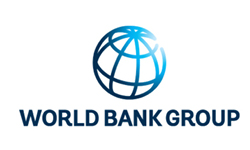668 results found
Featured results



More results
As part of its leading practices mandate, the GI Hub is developing a set of annotated risk allocation matrices for PPP transactions, in a variety of sectors.
The OECD Recommendation on Public Integrity provides policy makers with a vision for a public integrity strategy.

The GI Hub has signed a MoU with the Global Infrastructure Connectivity Alliance (GICA). GICA, which was launched by the G20, aims to enhance cooperation and synergies of existing and future global infrastructure and trade facilitation programs seeking to improve connectivity within, between and among countries.

The purpose of the present publication, “Towards better infrastructure products: a survey of investor’s perceptions and expectations of infrastructure investment”, is to conduct the first in-depth study of the perceived role by infrastructure assets for investors.



The Reference Guide attempts to provide the most relevant examples, references and resources to help readers inform themselves on key PPP topics.


GI Hub Chief Executive Officer Chris Heathcote addressed the Business Council for International Understanding at a lunch hosted by Australia’s Ambassador to the US Joe Hockey in Washington DC recently.

Overall, the study has taken a broad approach to defining OA - going well beyond the minimalist notion of simply guaranteeing legal access to the grid for generators and wholesale buyers.



This publication consists of analysis on the relationship between GDP growth and traffic growth and converting emerging market growth into investment opportunities.


This publication draws on the Private Sector Participation (PSP) experience of four emerging economies Brazil, Peru, the Philippines, and Turkey based on in-depth case studies by Energy Sector Management Assistance Program (ESMAP).

BCG has identified a series of best practices that underlie successful PPPs.


The Framework provides systematic structure for proactively disclosing information pertaining to PPP Projects.



Benefit-cost analysis (BCA) is a valuable and widely used tool. To reduce the odds of misuse, this report probes some important methodological issues, especially as they relate to transport projects.



A G20 report prepared by the Global Infrastructure Hub reviewing the extent to which Multilateral Development Banks (MDBs) create incentives within their organisations to crowd-in private finance to fund public infrastructure.


Asian Infrastructure Investment Bank President Mr Jin Liqun met Global Infrastructure Hub Chief Executive Officer Chris Heathcote at the GI Hub’s Sydney office on April 3, where both parties provided briefings on their key work. Discussion focused on the GI Hub’s report undertaken for the G20 on the role of Multilateral Development Banks in “crowding-in” private finance for public infrastructure, which was released earlier this year. The GI Hub has already been in discussions with the AIIB on the recommendations in the report.
The Principles of MDBs’ Strategy for Crowding-in Private Sector Finance for Growth and sustainable Development promotes effective approaches to maximize the mobilisation and catalyzation of private sector resources.

Global infrastructure needs and Public-Private Partnerships were discussed when the Foreign Correspondents’ Association of Australia met the GI Hub today.
Global Infrastructure Hub Chief Executive Officer Chris Heathcote says quality public infrastructure can promote greater affluence and spark global growth. Mr Heathcote told a Public-Private Partnership Seminar in Athens that “infrastructure changes lives and changes economies”.
This policy brief outlines promising ideas to attract instiutional investors to pay for infrastructure they have not convinced pension funds or affluent individuals to invest, especially in emerging economies with untested issuers, The “tax-kicker” bond being proposed here could solve this issue.

Mark Moseley, the GI Hub’s Senior Director for Legal Frameworks and Procurement Policies gave a presentation at a seminar on Future Ready: Sustainable Cities – Indonesia Infrastructure in Focus held in Jakarta, Indonesia on 7 March 2017.
Report reviewing the extent to which Multilateral Development Banks (MDBs) create incentives within their organisations to ‘crowd-in’ private finance to fund public infrastructure.











 Download Report
Download Report

